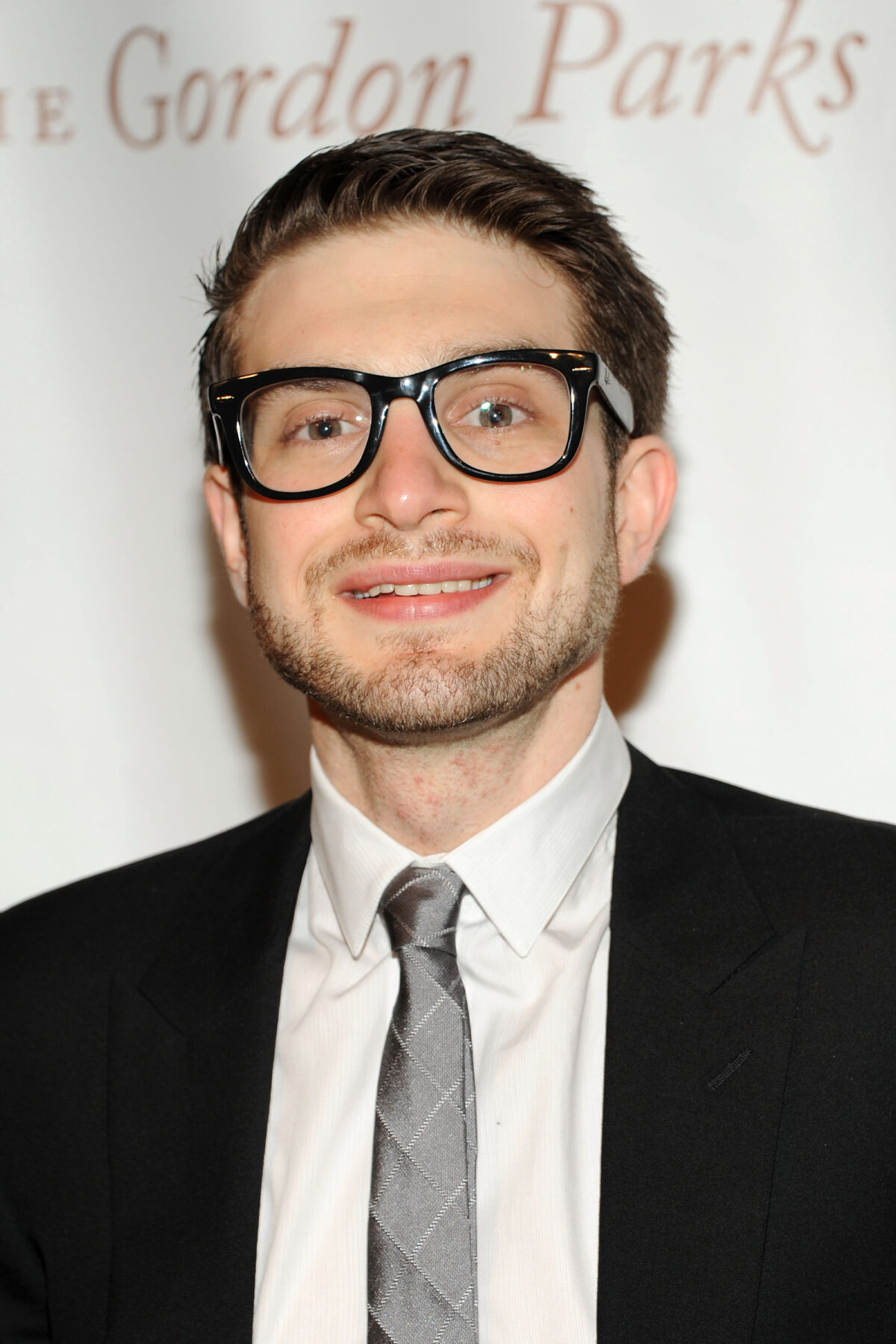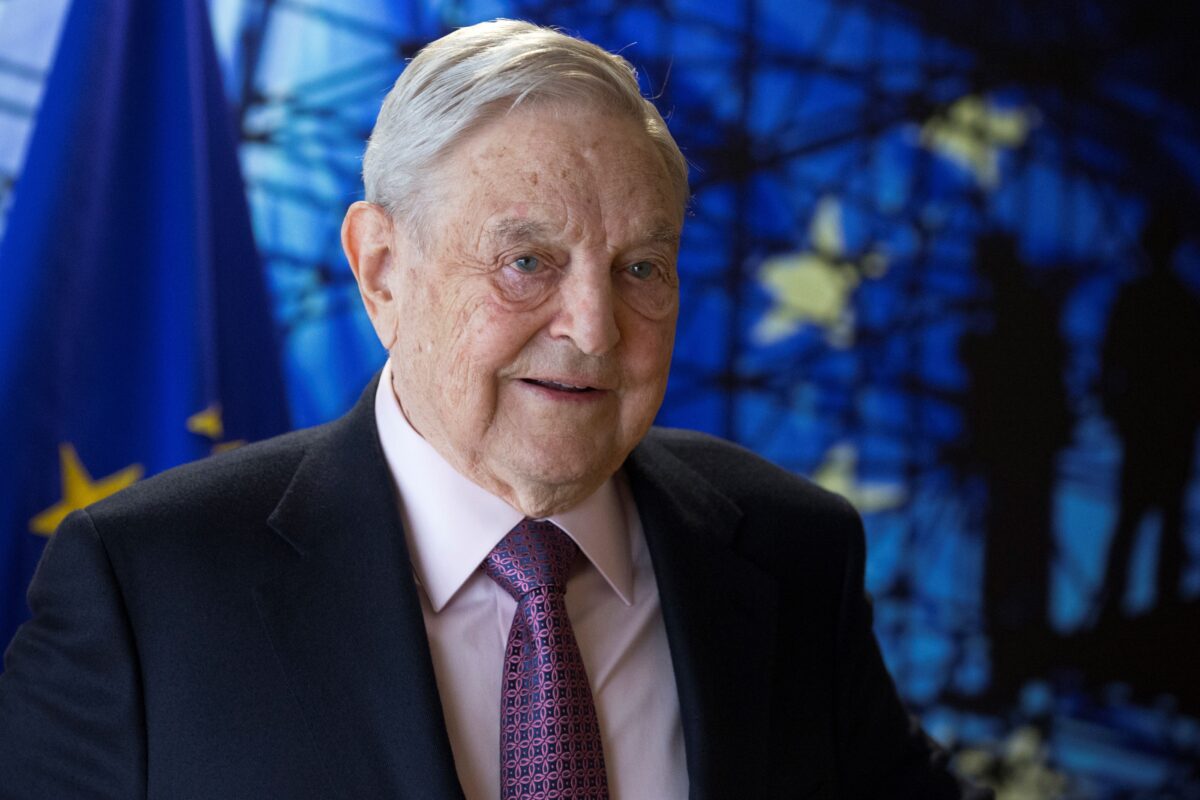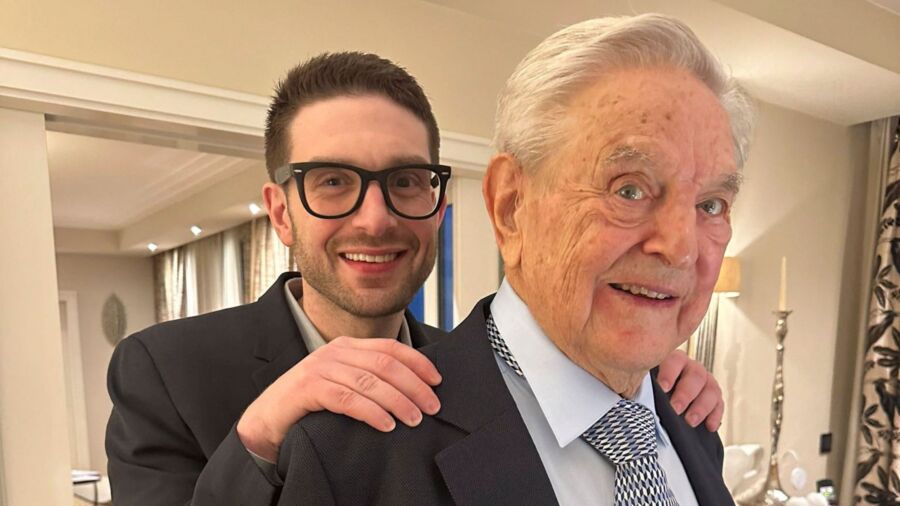Billionaire financier and political activist George Soros told The Wall Street Journal that he had ceded control of his $25 billion empire to his son, Alex Soros, who suggested he’d be even more politically engaged than his father.
George Soros, 92, told The Wall Street Journal that he had handed the reins of his Open Society Foundations (OSF) to his 37-year-old son.
The Democrat megadonor told the outlet that he initially didn’t want to cede control of the foundation to any member of his family “as a matter of principle.”
George Soros added, however, that he and his son “think alike” and that he’s taking over at the helm of the foundation because “he’s earned it.”
Alex Soros told the outlet that he’s “more political” than his father and he’s worried about the prospect that former President Donald Trump might win the 2024 race for the White House.
“As much as I would love to get money out of politics, as long as the other side is doing it, we will have to do it, too,” he told The Wall Street Journal, suggesting that the deep pockets of the Soros organization will be deployed to support presidential campaigns opposing Trump.

Alex Soros was quietly elected to the OSF board as its chairman in December, per Reuters.
He now directs political activity as president of Soros’s political action committee.
“We are going to double down on defending voting rights and personal freedom at home and supporting the cause of democracy abroad,” a spokesperson for Alex Soros told the Financial Times regarding his priorities for political action.
The Epoch Times has reached out to OSF for comment and with a request for further details on the future political engagement of the organization.

‘Soros DAs’
George Soros, a Hungarian-born investor worth billions, is a controversial figure in the United States after groups tied to him poured money into left-wing district attorney candidates’ campaigns across the country.
Trump has vowed to target what he and other Republicans have described as “Soros DAs” after being indicted by Manhattan District Attorney Alvin Bragg, who reportedly took campaign cash from Soros during the 2021 election.
Responding to an allegation that he backed Bragg, Soros said in March that he’s never met him and didn’t contribute any money to his election bid.
“I think some on the right would rather focus on far-fetched conspiracy theories than on the serious charges against the former president,” Soros told Semafor.
However, Soros has made clear his backing for certain prosecutors. In an earlier op-ed, Soros explained why he’s donated to “reform-minded prosecutors” and has “no intention of stopping.”
“The funds I provide enable sensible reform-minded candidates to receive a hearing from the public,” Soros wrote.
“In recent years, reform-minded prosecutors and other law-enforcement officials around the country have been coalescing around an agenda that promises to be more effective and just,” he wrote, adding that this includes less-punitive criminal justice policies.
“This agenda includes prioritizing the resources of the criminal-justice system to protect people against violent crime. It urges that we treat drug addiction as a disease, not a crime. And it seeks to end the criminalization of poverty and mental illness,” he wrote.
“This is why I have supported the election (and more recently the re-election) of prosecutors who support reform. I have done it transparently, and I have no intention of stopping,” he said.
Alex Soros’s remarks to The Wall Street Journal and the Financial Times suggest that OSF and affiliated groups will continue to press ahead with the agenda charted by George Soros.
OSF President Mark Malloch-Brown recently argued for the adoption of a “New Economic Order” that would focus on “justice and stability.”
Malloch-Brown said in a speech that if there’s “one watchword for this new framework of global governance, it must be ‘inclusivity,'” and along with it, “a multilateralism that has the roots and staying power for the new world that we are going into.”
He said a challenge of this new world would be whether collective rights supersede individual rights and whether “the interest of the state to build that green transition, provide inclusive growth means that it’s at the expense of human rights.”
“It’s not at all clear where that battle lands, as it’s not at all clear where the battle for democracy lands,” he said.
Some critics of the work of OSF have argued that its political agenda leans too far to the left.
Musk Calls George Soros ‘Magneto’
Twitter CEO Elon Musk recently sparked controversy when he compared George Soros to the “X-Men” supervillain “Magneto.”
“Soros reminds me of Magneto,” the Twitter owner wrote, referring to the Marvel comic villain who is a Jewish Holocaust survivor.
He added that Soros “wants to erode the very fabric of civilization” and “hates humanity.”
Musk’s comments came after Soros’s investment management firm, Soros Fund Management, confirmed in a filing with the U.S. Securities and Exchange Commission that it had sold off its entire stake in Tesla’s stocks in the first quarter of this year.
Jonathan Greenblatt, CEO of the civil rights group Anti-Defamation League (ADL), said Musk’s remarks would “embolden extremists.”
“Soros often is held up by the far-right, using antisemitic tropes, as the source of the world’s problems,” Greenblatt posted on Twitter. “To see Elon Musk, regardless of his intent, feed this segment—comparing him to a Jewish supervillain, claiming Soros ‘hates humanity’—is not just distressing, it’s dangerous: it will embolden extremists who already contrive anti-Jewish conspiracies and have tried to attack Soros and Jewish communities as a result.”
Musk later defended his comments about Soros in an interview with CNBC, saying it’s a question of freedom of speech while insisting that he’s not anti-semitic and is a “pro-Semite if anything.”
“It’s freedom of speech; I’m allowed to say what I want,” Musk said in the interview.
From The Epoch Times

